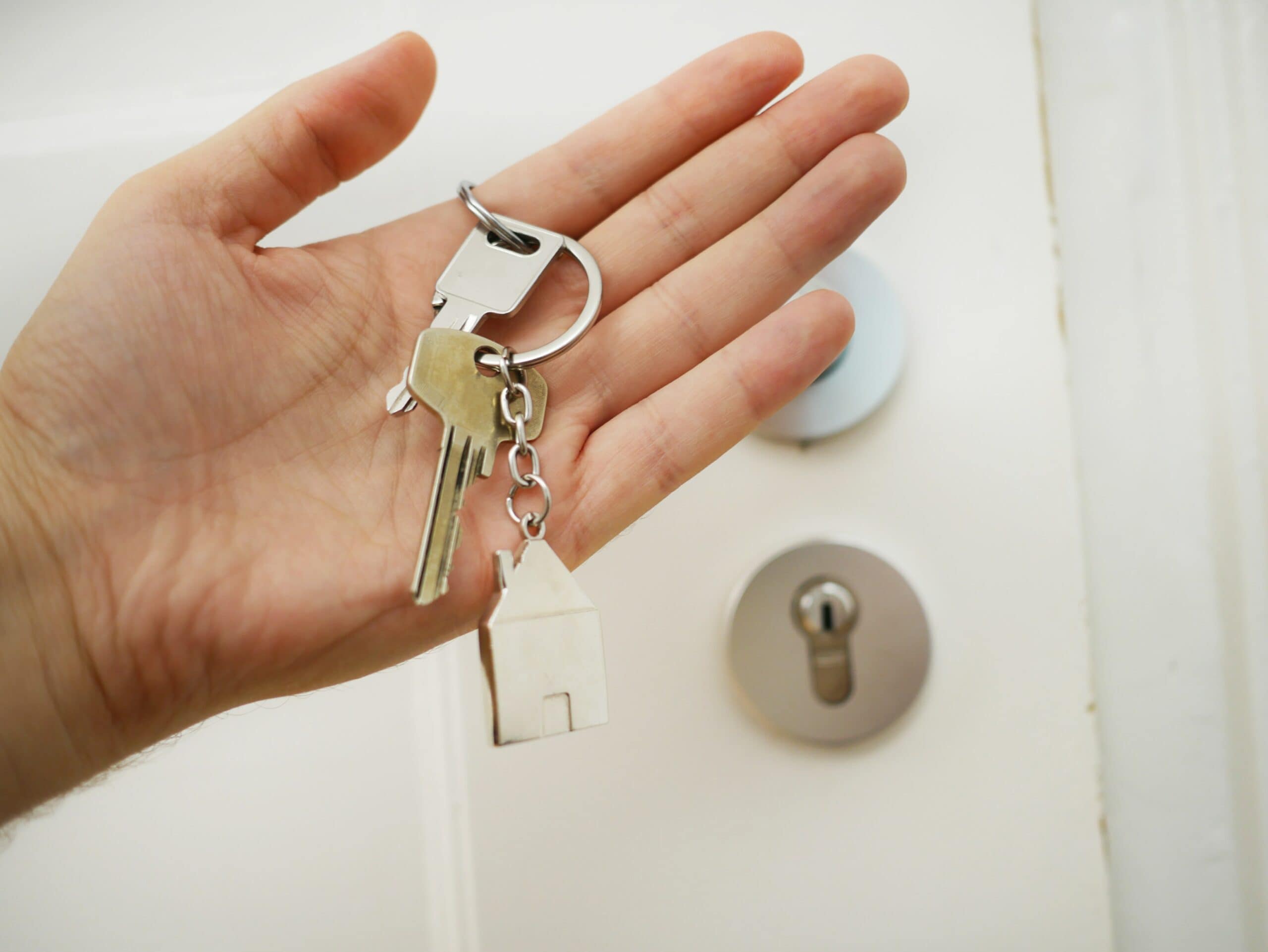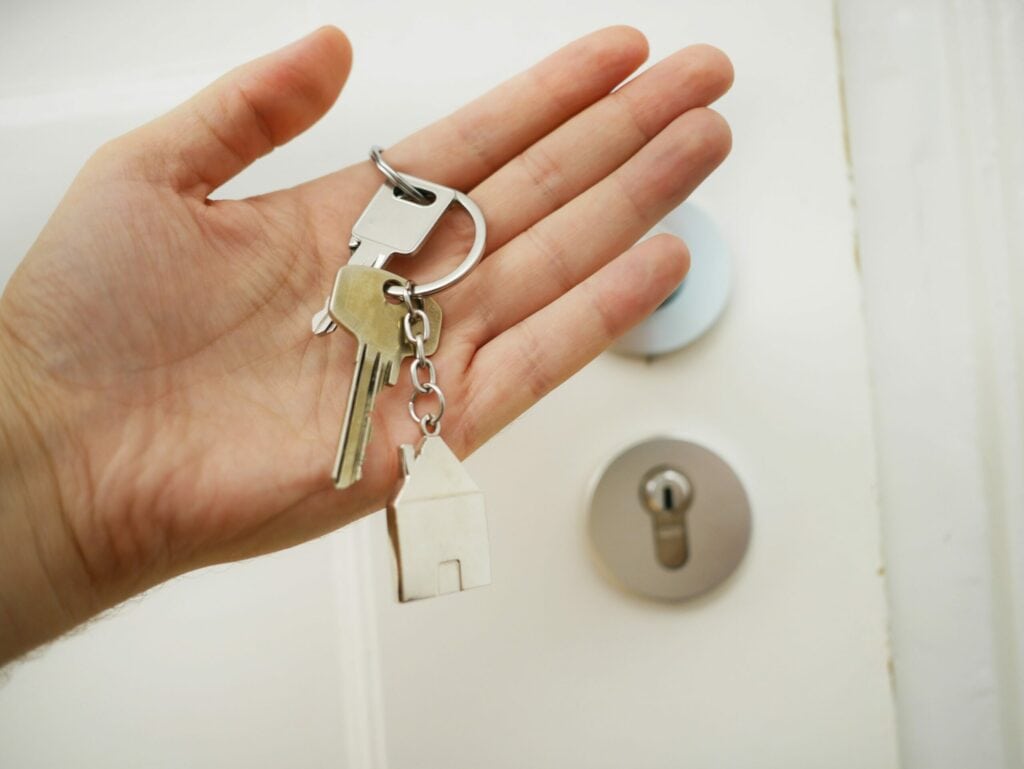
Buying a home is not only buying a house but also a lifestyle. When you buy a home, you become part of a community. You get involved with local events, meet new friends, and make memories.
It should be an enjoyable and exciting experience. But if you’re not quite there yet, don’t worry! You’re not alone. Most first-time buyers get overwhelmed thinking about buying their home. They feel there are too many things to deal with.
Unfortunately, this makes the whole venture stressful (above all else). And nobody wants that.
Which is why we’re here to help you out. Read through this guide to learn about the steps involved in buying a home. We’ll also give some tips for every stage of the process.
Home-Buying Process for First-Timers
At a glance, there are four steps that every first-time home buyers goes through.
- Getting ready (keeping your finances in check, figuring out where you want to live, etc.)
- Looking for properties (finding a Realtor, viewing properties, etc.)
- Buying your home (submitting an offer, doing the paperwork, etc.)
- Moving in (getting the house keys, maintaining the property, etc.)
We’ll go through each of these steps. And by the end of this article, you’ll have a good grasp of how the homebuying process works.
1. Getting Ready
Be Sure You’re Financially Ready
When buying a house, it is important to be financially prepared.
You have to assess your financial situation and see if you can take on a home loan on top of your current debt.
This is where credit ratios come in. Look into your debt and check how it plays against your credit and income.
| Debt-to-credit (DTC) ratio | Debt-to-income (DTI) ratio |
| calculated by dividing your total debt by your total available credit. It measures whether you’re financially responsible enough to handle any type of loan. It’s a good idea to keep your short-term credit utilization under 35% | represents the amount of money you owe compared to your total monthly income. You’d like to keep this low as it implies you have enough money left after paying your monthly bills. |
Knowing these numbers helps you assess how much home you can actually afford. You can find out more about how this works by working with a mortgage broker.
Get and Keep Good Credit
Once you’ve assessed your financial capability, look into your credit score. The higher your credit score, the better.
One of the things that lenders look at is your credit utilization. This is the percentage of your credit that you’re actually using. To increase your credit score, you’d want to keep this value below 35%.
Also, focus on paying off any short-term loans you might have before applying for a mortgage. Make payments (especially for credit cards) on time to steadily build up your credit score.
Some lenders could approve you for a mortgage even with a low credit score. But most lenders favor those with a good credit score. This is because it implies that the borrower always pays bills on time and is less likely to default on their mortgage.
Another way to increase your credit score is to speak with a credit counsellor. A credit counsellor can provide advice and strategies for improving your score. They can also help you better understand the factors that affect it.
Have Enough Money for a Down Payment
The biggest financial hurdle for first-time homebuyers is getting enough cash to cover the down payment. Most lenders would need you to put down at least 20% of the total purchase price of the house.
But there are ways in which you can get away with a down payment lower than 20%. Try looking into government incentives, for example. The province of Alberta offers a first-time homebuyer incentive that only requires at least 5% of the home’s total price.
These government programs and incentives are in place to encourage newcomers to invest in real estate. It makes it easier for people to own a home or secure home financing.
If you have a good credit score, then your down payment could be lower. But you need private mortgage insurance (PMI) for this. PMI is there to protect the lender in case of any missed payments on your behalf.
PMI might not seem like a major issue if you don’t mind paying a few extra bucks monthly for it. But you could save quite some money if you wait and save up for the 20% down payment required for most mortgages. It is ultimately best to put off buying your dream home until you can afford that full amount upfront.
Determine Which Type of Home You Need

When deciding which type of home to buy, ask yourself some questions. Would you prefer to have the property to yourself? Or would you be okay sharing some spaces with others? Also, are you looking for a quiet place to relax or a lively neighborhood where you can socialize?
If you’re looking for a place to raise children, you may prefer a larger house than a condo. It offers more space for the kids to run around and play.
And if you’re bringing pets, check if the property has pet-friendly policies (especially for condos).
If you’re planning to move within the next two years, you may be able to find a great deal on a fixer-upper. Fixer-uppers are older houses that need work. But they often come at a discounted price due to their lack of recent updates. These are perfect for when you’re planning to sell the house eventually.
Know Where You Want to Live
Before you buy a home, you need to decide where you’d like to live. Consider the location, price range, school district, commute distance, amenities, etc.
Do you want to live near restaurants, grocery stores, parks, and the like? Or would you rather live somewhere quieter?
School districts are another important consideration. Look into the type of education your children would receive in each area.
It’s also vital to consider commuting distances. Will you be able to walk or bike to work? Or will you need to rely on public transit? Does the area offer easy access to the main roads? All these questions will help you narrow down your options.
These factors play into the cost of living in each area. Depending on where you’re looking, a house in one area may be much cheaper than another. Explore the prices and look for deals.
Get Pre-Approved for a Mortgage
Getting pre-approved for a mortgage is a huge milestone for first-time homebuyers. You want to have this done before you place an offer on a home. It also gives you peace of mind knowing that you have a set budget to buy a house.
To get pre-approved for a conventional loan, you’ll need to prepare some documents. These include proof of income, employment history and other financial details. You’ll also have to take a mortgage stress test. It is a way to see whether you can still afford to buy a house should interest rates rise anytime soon.
With a mortgage pre-approval, you’ll can shop for your dream home with confidence.
But before submitting your application, you should understand the different types of loans. There are two main categories:
| Fixed-rate mortgages | Adjustable-rate (variable) mortgages |
| offer a consistent monthly payment over the life of the loan tend to be less expensive than adjustable-rate mortgages require borrowers to lock themselves into long-term contracts | adjust based on market rates provide flexibility can cost significantly more than fixed-rate options |
It’s essential to choose the type of loan that fits your needs. Both types of loans are suitable for first-time buyers. But they have their own advantages and disadvantages. Find a mortgage broker who could explain these further to you.
2. Looking for Properties
Get a Realtor
If you’re a first-time homebuyer, you’ll need someone to guide you through the process. And this is where a real estate agent comes in handy.
How do you find a real estate agent? Look for someone who knows the area well. You’d also want someone who has experience working with first-time buyers. You can also ask friends and family members for recommendations. Or you can also look online for reviews of local agents.
Once you’ve found a few candidates, interview each person in depth. Ask them the same questions and see how their answers compare. Keep asking them as many questions as you’d like, and trust your gut when choosing which Realtor to get in the end.
There isn’t a one-size-fits-all standard for Realtors. But the right Realtor should have a clear understanding of your unique situation. Also, they should know exactly what you’re looking for in a home.
Book Viewings
Viewings are a great way to learn about homes before making a purchase. When you book a viewing, you get to tour the house and see it face-to-face. This gives you a chance to get a feel for the property and decide whether it’s the perfect fit for you.
It’s also an excellent opportunity to ask the Realtor some questions you have about the home.
The more houses you view, the better. This is especially helpful when you don’t know what you’re looking for in a home just yet. House viewings give you a better grasp of the features you want and need for your next home.
And even if you don’t like the houses you’re viewing, at least you’ll have a clearer idea of your deal breakers in a home.
To book a viewing, contact the listing agent or real estate agency.
Visit Open Houses

Open house tours are a great way to learn about neighborhoods and homes that interest you. But open houses are usually held for one day only. So you’ll have to take the opportunities that fit with your schedule.
It’s easy to miss out on open houses because they aren’t advertised that well. Many real estate agents don’t put much effort into promoting them. And homeowners don’t always advertise them either. So, if you want to attend an open house tour, you’ll need to look for signs posted outside of homes.
Make sure you bring along your Realtor. They can act as your guide and help you navigate the neighborhood. Also, try to arrive early so you can have enough time to talk to the agent.
Find Your Perfect Home
Finding the perfect home could take months. There are a lot things take into account before you can find the best option on the market.
It would be best to spend time researching all the features you can find on a home. Then, compare them with other homes that also fit your preferences. It could take a long time before you can decide which house to buy.
But then again, you can’t take too long either (especially in a competitive market). Or you might not be able to get the home of your dreams. Someone could buy it before you can even place an offer. Or interest rates may rise, and you could end up not being able to afford it anymore.
That’s why you need to work with a Realtor to speed things up a little bit. Make sure you give them clear information on what you’re looking for in a home. Tell them which features you’d be okay with as well as those that are non-negotiable.
Let them know about your budget for a home. Then, provide them with your conditions before buying the house. Also, tell them when to walk away, especially in a bidding war.
Collaborate with your Realtor to find your perfect home with great success.
3. Buying Your Home
Submit an Offer
If you are ready to buy your first home, you must first submit an offer on a property.
You’ll typically offer less than the asking price. That gives you a chance to negotiate a better price. Follow your Realtor’s guidance on this, though. Different markets will require different negotiation tactics.
Your Realtor would know how to place an offer on a home. So, you shouldn’t worry about the technical aspect of this step. What you should focus on instead is reaching an agreement with your Realtor on the amount to offer for the home. If there’s a bidding war, decide how much you’re willing to raise your offer.
Your Realtor would then submit your offer to the seller’s agent. They could either decline your offer, accept it, or present a counteroffer which you can either accept or counter. This process would repeat until both sides reach an agreement or decide to end negotiations.
If you do reach an agreement with the seller, you’ll need to make a good-faith deposit. This is usually 1–3% of the total purchase price. This is to assure the seller that you’re serious about buying the home.
This deposit will go towards your down payment, so you’re not losing any money by paying it. The only time you’ll lose your good-faith deposit is if you don’t continue with the home purchase. Especially if it’s for a reason that isn’t stated in the conditions of your offer.
Conditions
Conditions are terms you put in the contract that states what needs to happen before you can buy the house. An example would be to have a satisfactory home inspection before moving forward.
You could also include a condition for when you find any issues with the house during the inspection. The seller could have it fixed, pay for the repair costs, or lower the home’s selling price.
Conditions can be anything you deem necessary to include in the offer. It’s a way to ensure you’re getting what you expect of the home. It also protects you from potential scams and gives you a way out if things start looking suspicious.
In a competitive market, buyers sometimes choose to forgo these conditions. That’s because, in a bidding war, sellers are more likely to accept offers with no conditions.
It’s your discretion to go with this option in a bidding war. But keep in mind that there could be issues or problems with the home. And without the conditions, you won’t be able to negotiate with the seller before you buy the property.
But if an offer is competitive enough, you could still win a bidding war even with all the conditions you put in it. So, make sure you hire a competent Realtor who can get you the house you want, even if other people want it.
Get an Inspection
Once you’ve made your good-faith deposit, you can request a home inspection.
Remember to always get a home inspection from a qualified professional. They’re the only ones who can give you an in-depth report of any problems present in the home you plan to buy.
If the report states that some parts of the house need immediate repair, raise it with the seller. If they don’t want to take care of the issue, negotiate if they could lower the price.
If they disagree, you may decide not to continue with the transaction. But make sure it’s included in the conditions of your offer.
Get a Lawyer
Since buying a house is a big deal, you’ll want to hire a lawyer to work with you. Your Realtor should be able to connect you with a lawyer that specializes in real estate. Or you could also ask your family and friends if they can recommend someone you can work with.
Having a lawyer during the homebuying process gives you peace of mind. They can ensure everything is valid and legal as you go through your homebuying journey.
A lawyer will also help you draft your offers or counteroffers. You can be confident that you’re not losing anything in the deal. Or if you are, at least you’ll be aware of it.
Do the Paperwork

Buying a home has a lot of technicalities, which also means there are a lot of things you need to approve and sign.
Go through all the documents with your lawyer. Don’t hesitate to ask if there’s something you don’t quite understand. Your lawyer should explain anything to you and ensure you’re good with what you’re signing.
Run everything with your lawyer and check if all terms are in your best interest.
Pay the Closing Costs
The down payment isn’t all you need to have a budget for when purchasing a home. There are also the closing costs before you can take possession of your new home.
Closing costs are fees paid to your lender to close a home purchase. These can vary depending on the type of property you buy. But closing costs generally include the following.
- down payment
- property tax
- legal fees
- title insurance
Sellers pay most of the closing costs, but you, as the buyer, will still need to shoulder some of these. That’s why it’s essential to have money set aside to cover these costs.
4. Moving In
Taking Possession
Once you’ve covered the closing costs, all that’s left to do is wait for possession day. This is when you’ll get the keys to your new house.
Congratulations! It’s an important milestone you’d want to remember. So, make sure to celebrate it by yourself or with your loved ones.
Once you’ve taken possession of your new home, you can do whatever you want with it. Move your stuff inside and arrange everything according to how you like. Go grocery shopping to fill up your pantry. Take a breather on your couch or porch to get some much-needed rest after everything.
But don’t forget that your responsibility as a homeowner doesn’t end when you get the keys to your house. You’ll still have to maintain the property and address issues as soon as you discover them.
Perform Maintenance
As a new homeowner, you’re responsible for ensuring that your house stays in tip-top shape. And the only way to do this is by performing regular maintenance on your property.
Take care of minor repairs every once in a while. Don’t wait for them to become a bigger issue that could be much harder to fix in the future.
Have a professional inspect your house from time to time. This is to ensure there aren’t any pressing concerns about the property that you’ve missed. If there are, make sure to address them immediately.
It’s also important to keep everything—furniture, appliances, interiors, etc.—up to date. More than the visual aspect, it’s a practical course of action to keep your house in good condition.
Maintaining your exterior and curb appeal is also important. After all, it’s the first thing people see when they arrive at your home. This is especially important if you want to leave a good impression on your guests.
Also, maintaining your property will help you a lot if you ever decide to sell your home at some point in the future.
Prepare for Mortgage Renewal
Though you received approval for your mortgage, it doesn’t mean you can be spendthrift. Chances are that you’ll need to renew the loan in five years. So, keeping a positive credit score and good financial habits will benefit you in the long run.
Your contract terms will only be in effect for a certain amount of time. After that, you’ll have a chance to renegotiate the terms of your conventional loan. You may have the option to change your monthly mortgage payment and schedule as you wish. Or you might also try requesting lower mortgage rates.
Your request is likely to get approved when you maintain good financial health.
Prepare to Pay the Other Costs of Home Ownership
When you own a home, there are costs that you have to pay now and then. These include property tax, homeowners insurance, community association fees, condo fees, etc.
The amount you pay varies depending on the type of property that you have. For example, expect to pay higher costs if you have a bigger lot or space.
Don’t let the costs of home ownership take you by surprise. It’s important to prepare for emergency costs.
Consider Your Next Move
Life can take unpredictable turns. You may have to transfer for work or even desire a new environment earlier than expected. Thus, plan ahead and ensure that whatever the future holds won’t come as a shock.
If you’re planning to move, would you be upsizing or downsizing? Downsizing may be less complicated than upsizing. But it also comes with its own disadvantages. So make sure you weigh your options before making an informed decision.
Either way, you should keep your home in a sellable condition. Whether you’re planning to move in a few months or years, your goal is to keep your house in its best condition. This is to help you sell it much easier later on.
Buying Your First House

Taking a first-time homebuyer class can be beneficial for your homebuying journey. Completing the course can help you qualify for perks, too. These include lower interest rates and competitive pricing.
If you choose to buy your first home without taking a course, this guide will assist you every step of the way:
- Get ready in all aspects. Keep your credit score high and get a mortgage pre-approval. Have enough money saved for a 20% down payment. Also, knowing what you need and want for your new home is essential.
- Start looking for properties with the help of a real estate agent. View the properties in person and visit open houses to get a feel of what living in your new home could be like.
- Submit a competitive offer and wait for the seller’s acceptance or counteroffer. If it pushes through, proceed to complete all paperwork and pay the closing costs.
- Move into your new home. And set aside money for property taxes, association fees, and emergency repairs. If you’re planning to move anytime soon, make sure you maintain your property well.
Reach out to the Maverick Group now to get started on your journey of becoming a first-time homebuyer! Learn all that you need to know about making this important life decision.








